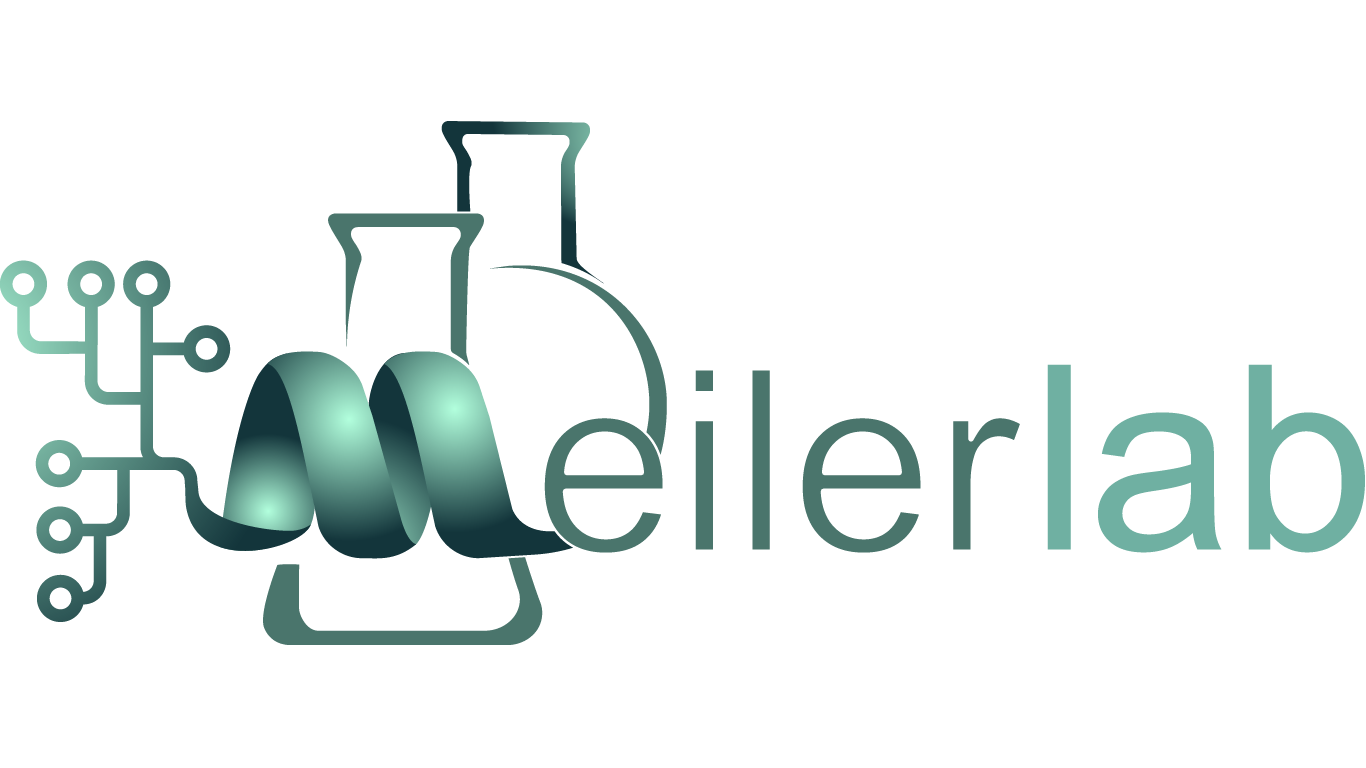The Meiler laboratory at Vanderbilt University in Nashville, Tennessee has openings for interns, Ph.D. students, and post-doctoral fellows interested in chemical and structural biology. Projects are available in all research areas using a wide variety of tools and techniques. Please contact Jens Meiler at jens@meilerlab.org or go to www.meilerlab.org.
Research in our laboratory seeks to fuse computational and experimental efforts to investigate proteins, the fundamental molecules of biology, and their interactions with small molecule substrates, therapeutics, or probes. We develop computational methods with three major ambitions in mind:
1) The laboratory of Jens Meiler is looking immediately for outstanding postdoctoral candidates that will join a team of graduate and post-graduate researchers in the field of structure-based drug design. Specifically, the successful applicant would integrate and develop the drug design capabilities of Foldit – a crowd-sourced game based on the Rosetta macromolecular structural modeling package – to test the hypothesis that citizen scientists can contribute to drug development. Qualified applicants should have a PhD in Biology, Chemistry, Math, Physics or Computer Science. In addition, the individual should have two years of experience in one or multiple of the following areas: computational biology or chemistry, mathematics, physics, software engineering/development, or object oriented programming. Ability to work simultaneously on multiple projects (including internal and external collaborations) and strong willingness to learn additional research skills are expected. Please contact Jens Meiler at jens@meilerlab.org
2) The laboratory of Jens Meiler is looking immediately for outstanding postdoctoral candidates that will join a team of graduate and post-graduate researchers in the field of gamification of structure-based drug design. Specifically, the position would be to optimize Foldit, a crowd-sourced game based on the Rosetta macromolecular structural modeling package, for the task of structure-based drug design, and to integrate additional software tools to assist Foldit users in drug development. Qualified applicants should have a PhD in Computer Science, Biology, Chemistry, Math, or Physics. In addition, the individual should have two years of experience in one or multiple of the following areas: user interface design, computational biology or chemistry, mathematics, physics, software engineering/development, machine learning, or object oriented programming. Ability to work simultaneously on multiple projects (including internal and external collaborations) and strong willingness to learn additional research skills are expected. Please contact Jens Meiler at jens@meilerlab.org
3) The laboratory of Jens Meiler is looking immediately for outstanding postdoctoral candidates that will join a team of graduate and post-graduate researchers in the field of membrane protein Structure determination from limited NMR and EPR data. Specifically, we pursue an integrated computational/experimental approach that combines novel algorithms in the software Rosetta with innovative paramagnetic tagging strategies that utilize non-canonical amino acids. Skills that are a plus, but not all would be required, include programming/scripting, computational protein modeling and design, knowledge of DNA manipulations, recombinant protein expression and purification, standard molecular biology techniques, experimental structural biology (X-ray, NMR, EM, EPR, …), ability to work simultaneously on multiple projects (including internal and external collaborations), strong willingness to learn additional research skills if needed. Please contact Jens Meiler at jens@meilerlab.org
4) The laboratories of James E. Crowe and Jens Meiler are looking immediately for outstanding postdoctoral candidates that will join a team of graduate and post-graduate researchers co- advised by both mentors. The candidates would work to integrate structural biology with big data to engineer antibodies and next generation vaccines targeting influenza, HIV, Ebola, or Marburg viruses. The project involves computational design of broadly neutralizing antibodies, computational engineering of vaccine candidates, and experimental structural and functional characterization of these. Skills that are a plus, but not all would be required, include programming/scripting, computational protein modeling and design, knowledge of DNA manipulations, recombinant protein expression and purification, standard molecular biology techniques such as ELISA, experimental structural biology (X-ray, NMR, EM, …), knowledge in immunology, ability to work simultaneously on multiple projects (including internal and external collaborations), strong willingness to learn additional research skills if needed. For further information please refer to: https://my.vanderbilt.edu/nextgenvaccines If interested, please submit a CV and arrange three letters of reference sent to jens@meilerlab.org
Current research applications focus on new approaches to a) drug and probe development for neurodegenerative disorders and diseases including Schizophrenia, Alzheimer’s, and Parkinson’s, b) understanding the structural determinants of antidepressant binding to neurotransmitter transporters, c) cardiac arrhythmia as caused by the complex interplay of potassium channel regulation and drug interactions, d) multidrug resistance in cancer and bacterial cells related to multidrug transporter proteins, and e) structural basis of viral infections and antibody activity.
Vanderbilt is an internationally recognized research university that offers undergraduate programs as well as a full range of graduate and professional degrees. The combination of cutting edge research, liberal arts, and a distinguished medical center creates an invigorating atmosphere where students tailor their education to meet their goals, and researchers collaborate to solve complex problems affecting our health, culture and society. From 2001 to 2006, Vanderbilt had a compound annual growth rate of 16.4% in NIH grants, the fastest growing academic medical center program in the country. Vanderbilt is now ranked 12th nationally. Seven of the School of Medicine’s departments were ranked in the top 10 among comparable medical school departments in receipt of NIH funding in 2005. Vanderbilt is an independent, privately supported university. The campus is a park-like setting, with more than 300 tree and shrub varieties, and was designated a national arboretum in 1988.
Vanderbilt’s hometown of Nashville is a vibrant, engaging city known proudly as “Music City, U.S.A.” The city was settled in 1779 and permanently became the state capital in 1843. The city proper is 533 square miles with a population of nearly 570,000. Nashville typically enjoys a mild and pleasant climate with only a few days of very hot or very cold conditions each year. Nashville has been named one of America’s friendliest cities for three years in a row.
